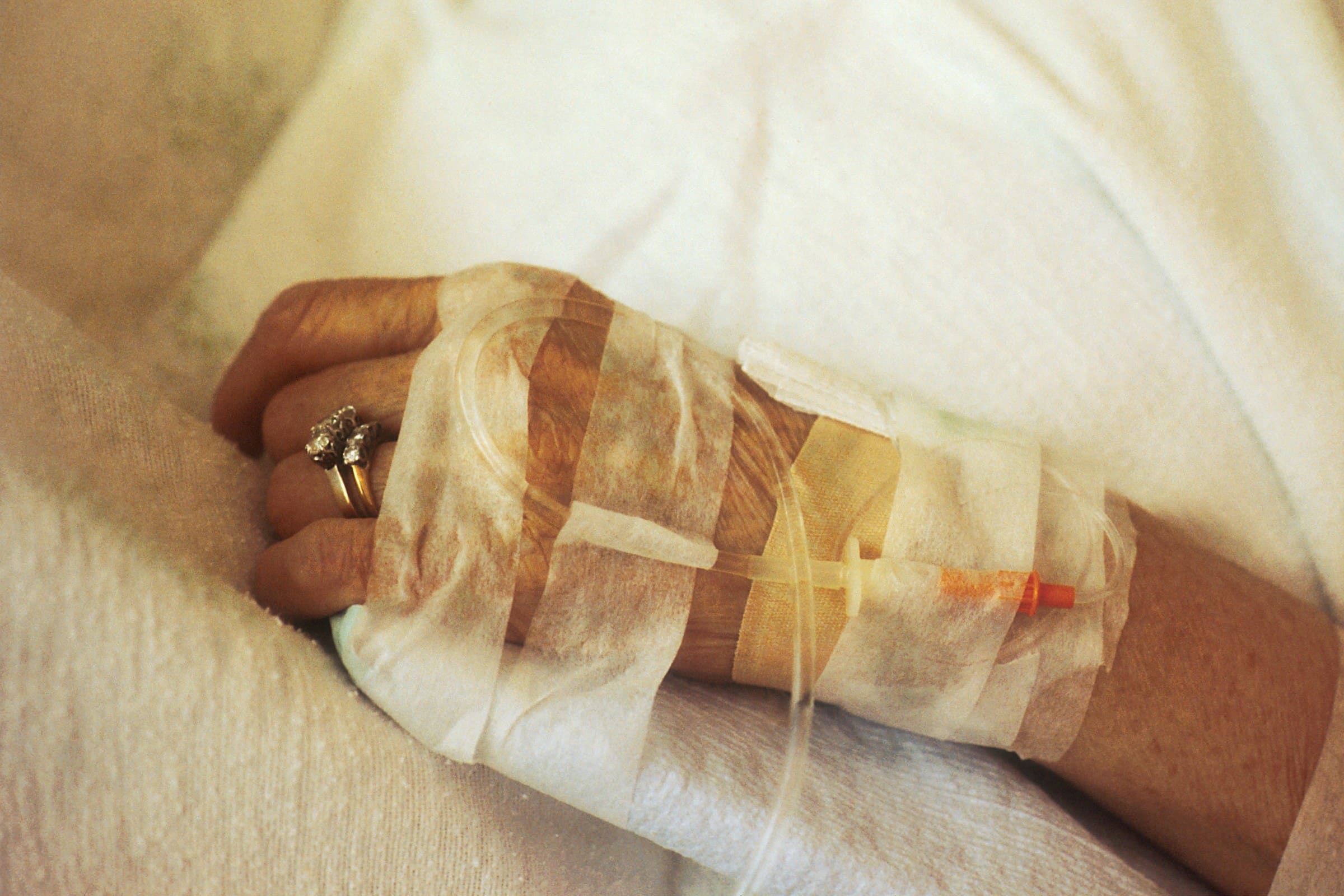What Are the Best Practices for Skincare in Patients Undergoing Chemotherapy?

Chemotherapy is often a necessary tool in the fight against cancer. However, it’s not without its side effects. One of the most common, and often most distressing, is damage to the skin. Dry, itchy, or inflamed skin can be a constant source of discomfort for patients undergoing chemotherapy and can have a significant impact on their quality of life. This is why skincare for chemotherapy patients is a topic of utmost importance.
The good news is that there are many strategies and products available to help manage the skin-related side effects of chemotherapy. By understanding the potential issues, you can take steps to keep your skin as healthy and comfortable as possible during treatment.
This might interest you : How Does the Built Environment Affect Physical Activity Levels Among Adolescents?
This article will discuss the best practices for skincare in chemotherapy patients, offering tips and guidance based on scholarly research and expert recommendations.
Understanding the Effects of Chemotherapy on the Skin
Before we delve into the best practices for skincare during chemotherapy, it’s crucial to understand the effects that this type of treatment can have on your skin. Chemotherapy is a type of cancer treatment that uses one or more anti-cancer drugs to kill or slow the growth of cancer cells. However, these powerful medications can take a toll on your skin.
Also to read : Can Biofeedback Therapy Help Manage Chronic Headaches?
Common skin-related side effects of chemotherapy include dryness, irritation, photosensitivity, and hand-foot syndrome, a condition characterised by redness, swelling, and pain in the palms of the hands and the soles of the feet. Less common but still possible effects can include rashes or changes to the nails.
These effects are a result of the impact of chemotherapy on rapidly dividing cells, a characteristic of both cancer cells and certain types of skin cells. While the intention is to target the cancer cells, the treatment inevitably affects healthy skin cells as well, leading to various skin-related issues.
Choosing Skincare Products for Chemotherapy Patients
When you’re undergoing chemotherapy, the right skincare products can make a significant difference. It’s essential to choose products designed to support and protect your skin without causing further irritation or introducing harmful ingredients.
Firstly, when shopping for skincare products, look for those labeled as ‘fragrance-free’. Fragrances can be irritating to sensitive skin and may even lead to allergic reactions. Next, consider the ingredients. Many skincare products can contain harsh chemicals, and some may even have potential carcinogenic properties. Seek out products with a shorter, more natural ingredient list.
Products rich in antioxidants can also be beneficial as they can help protect the skin from free radicals, unstable atoms that can cause damage to cells and contribute to aging and diseases.
Moisturizers are particularly important for chemotherapy patients as they can help to combat dryness and keep the skin supple. Opt for a thick, creamy moisturizer that can provide a protective layer for your skin. Be sure to apply it regularly, especially after showering when the skin is still damp.
The Importance of Sun Protection during Chemotherapy
Sun protection is always important, but it’s particularly crucial for those undergoing chemotherapy. Many chemotherapy drugs can make your skin more sensitive to the sun, increasing your risk of sunburn and other sun-related damage.
Wearing a broad-spectrum sunscreen with an SPF of at least 30 is a must. Broad-spectrum means that the sunscreen protects against both UVA and UVB rays, both of which can cause skin damage. Don’t forget to apply it to all exposed areas of skin, including often-forgotten spots like the tops of ears and back of the hands.
In addition to sunscreen, consider other forms of sun protection, such as wearing a wide-brimmed hat, long-sleeved shirts, and sunglasses. Try to avoid the sun during peak hours (usually between 10 am and 4 pm), when the sun’s rays are most intense.
Care for Skin Toxicities During Chemotherapy
While skin dryness and sun sensitivity are more common, chemotherapy can sometimes cause more significant skin toxicities, such as severe rashes or painful skin conditions. In these cases, over-the-counter products may not be enough, and healthcare intervention may be necessary.
If you’re experiencing severe skin issues during chemotherapy, don’t hesitate to reach out to your healthcare provider. They can recommend appropriate treatments, such as prescription creams or lotions, or in some cases, oral medications. They may also refer you to a dermatologist for specialised care.
Radiation therapy, often used in combination with chemotherapy, can also cause skin toxicities. In this case, your radiation oncologist can recommend specific skincare practices to help manage these side effects.
The Role of Lifestyle in Skincare during Chemotherapy
While skincare products and sun protection are crucial, lifestyle factors also play a significant role in maintaining skin health during chemotherapy.
Hydration is key. Drinking plenty of water can help keep your skin hydrated from the inside out.
A healthy diet can also support skin health. Try to include a good mix of fruits, vegetables, lean proteins, and healthy fats in your meals. These foods provide the vitamins, minerals, and antioxidants your skin needs to repair itself and stay healthy.
Regular, gentle exercise can also benefit your skin. Exercise boosts circulation, which can help to nourish your skin cells. Of course, it’s important to discuss any new exercise regimen with your healthcare provider to ensure it’s safe and suitable for your current health condition.
In conclusion, while chemotherapy can undoubtedly pose challenges to maintaining skin health, there are many strategies that can help. By understanding the potential effects of chemotherapy on your skin, choosing the right skincare products, practising sun protection, seeking treatment for skin toxicities, and leading a healthy lifestyle, you can help keep your skin as comfortable and healthy as possible during your treatment.
Maintenance of Skin Health with Growth Factors and Supportive Care
Chemotherapy can be arduous, and its impact on skin health is a major concern. To mitigate its adverse effects, you may want to consider using skincare products with growth factors. Growth factors are proteins that play a crucial role in maintaining skin health. They are involved in cell division, new cell and blood vessel growth, and collagen and elastin production. Skincare products that contain growth factors can aid in skin repair and rejuvenation.
A study found on Google Scholar indicates that growth factor-based products can reduce the appearance of fine lines and wrinkles, improve skin texture and elasticity, and promote skin radiance. In addition, they may also assist in the recovery of skin tissue affected by chemotherapy. Always consult your healthcare provider or a dermatologist to select the right growth factor-based product appropriate for your skin’s needs.
Supportive care, as the name suggests, aims to provide relief from symptoms and stress during cancer treatment. Such care is given alongside cancer treatment, focusing on improving the quality of life for patients. It extends beyond skin care to include managing physical and psychological symptoms, coordinating care, and aiding in decision making.
In the context of skin care, supportive care may involve the use of mild, non-irritating cleansers, frequent application of moisture-retaining creams, use of cotton gloves or socks to prevent scratching, and use of cool, moist compresses for relief from dry and itchy skin.
The Potential of Oral Skin Care Supplements in Managing Chemotherapy-Induced Skin Toxicity
Research articles on PubMed have suggested the potential role of oral skin care supplements in managing chemotherapy-induced skin toxicities. These supplements, which often contain essential vitamins, minerals, and antioxidants, can support skin health from within.
Vitamin A, for instance, is crucial for the maintenance and repair of skin tissue. Vitamin C, a powerful antioxidant, can combat free radicals and boost collagen production. Similarly, Vitamin E has antioxidant and anti-inflammatory properties that can help soothe and heal damaged skin.
Omega-3 fatty acids, commonly found in fish oil, are also beneficial for skin health. These essential fats can help strengthen the skin’s barrier function, reduce inflammation, and keep skin moisturized.
Supplements containing hyaluronic acid can also promote skin hydration and elasticity. A study discussed in a PMC free article noted that oral hyaluronic acid supplements could significantly improve skin moisture and reduce dry, rough skin.
That being said, anyone considering taking oral skin care supplements should first consult their healthcare provider. While these supplements can offer certain benefits, they may not be suitable for everyone, especially cancer patients undergoing treatment, who may have specific dietary restrictions or medication interactions to consider.
Conclusion
Taking care of your skin during chemotherapy goes beyond simple vanity. It is about comfort, confidence and overall quality of life. With the skin being one of the most visibly affected areas during chemotherapy, prioritizing skin health becomes extremely important. This article has hopefully shed some light on the best practices for skincare during this challenging time. As a cancer patient, understanding the impacts of chemotherapy on your skin, choosing the right skincare products, safeguarding yourself from sun damage, staying hydrated, maintaining a healthy lifestyle, seeking help for skin toxicities, considering growth factors and supportive care, and potentially incorporating oral skin care supplements into your routine can greatly improve the health of your skin and your overall well-being during treatment. Always remember, consulting your healthcare provider before making any changes to your skincare routine is crucial. Every individual’s journey with cancer is unique, so tailoring a skincare regimen that caters to your specific needs is paramount.
